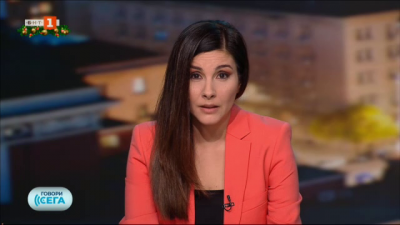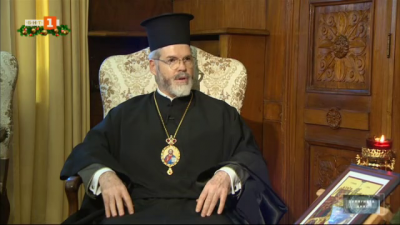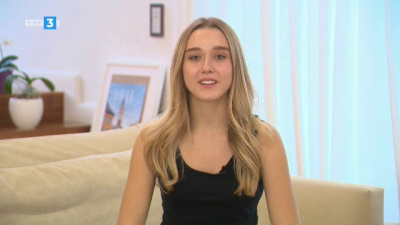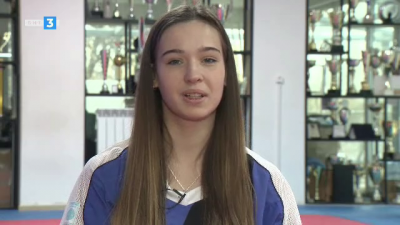Kindergartens in Bulgaria re-open as of May 26
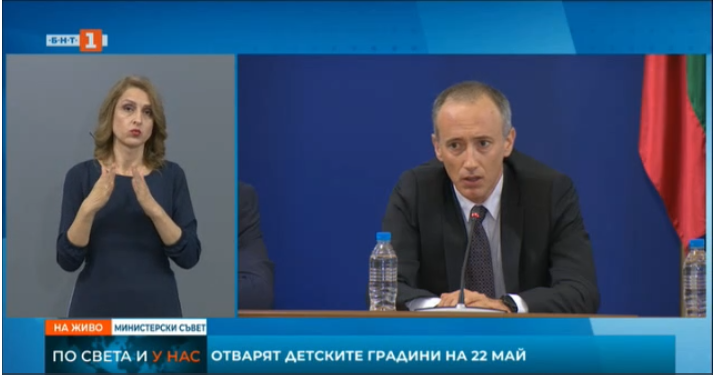
Kindergartens and nurseries will re-open on May 26. This became clear from the briefing of the Ministers of Education and Health, Krassimir Valchev and Kiril Ananiev on May 19.
Schools, universities, kindergartens and nurseries in Bulgaria were closed when the two-month coronavirus State of Emergency was introduced on March 13.
The re-opening of the activity of the kindergartens and nurseries will take place in strict compliance with the sanitary and hygienic requirements, the anti-epidemic measures and ensuring a safe and healthy environment for the children, said Health Minister Ananiev.
On the first day of the re-opening, the body temperature of each child will be measured.
Parents will sign a declaration of informed consent and shared responsibility, declaring that they are aware of all the measures that are being taken and that they have voluntarily wished their child to go to the kindergarten.
The order for the re-opening will also include a text, which assigns the mayors of municipalities to create the necessary organization for opening the activities of kindergartens and nurseries, depending on the specifics of each municipality.
Before that, there was an ordinance of the Minister of Health, which provided for the provision of a medical note for each child to enter the kindergarten. The Health minister said that such note now will not be required.
Other measures are envisaged to ensure the social distance between the different groups, teachers and staff and parents.
Education Minister Valchev appealed to the parents not send their children to kindergartens if they could stay at home. 38% of parents are ready to send their children to kindergarten, according to a survey. The visit will not be mandatory, the minister said. No notes will be required under Ordinance №3.
Municipalities will decide when to open kindergartens by June 1st. Most are expected to open next week. It is assumed that the groups will be from 10-11 children, in big cities - between 12 and 18 children in a group. This number is expected to decrease.
About 75% of kindergartens have worked intensively in an electronic environment. There can be no distance within the groups, the minister said. Measures will be taken for distance between groups. Teachers will wear protective means. A survey will be conducted each week on how many children will attend kindergartens. The aim is to create the necessary conditions.
When asked what will be done in the event of potentially infected children and whether the entire kindergartens will be quarantined, the Chief State Health Inspector Assoc. Prof. Dr. Angel Kunchev answered that quarantine is often established in gardens and nurseries due to other diseases. In the case of coronavirus, it will be proceeded in the same way. Much depends on the organization and size of the kindergarten. Where there is a possibility and the children are separated into separate groups that do not contact, only the affected group will be quarantined. However, if they are smaller and there is such contact, the whole kindergarten will be quarantined for 14 days, no new children will be admitted, they will be subject to tests and monitoring to identify any symptoms.
Assoc. Prof. Dr. Angel Kunchev, Chief State Health Inspector: We have no worries about children and their health. We have more concerns about the staff working there and the possibility of children carrying the infection into their homes.
Targeted testing of the staff is envisaged, added Minister Ananiev. About 1,000 staff members will be tested to track the incidence trend.
Shared responsibility between parents and teachers is important. It is important for the parents to take their share of responsibility and to measure the child's body temperature every morning - it should not exceed 37.3. The first day in the kindergarten, the temperature of all children will be taken, and in the following days - only those who have symptoms, the minister said.
The time intervals in which children are taken and picked up from kindergartens and nurseries will be increased in order to avoid crowding. Children will be left at the entrance of the building if it is not raining. If it rains, they will be held in the hallway so that there are no interactions between the parents, as well as between the parents and the teachers, he explained.
Get the latest news wherever you are!
Follow us on
Facebook
and
Instagram
Follow BNT’s YouTube channel
You can now also watch us on
TikTok
Find us on
Google News






